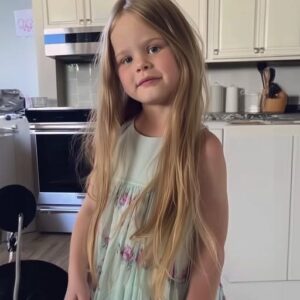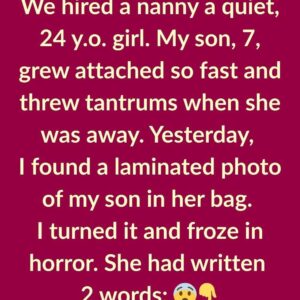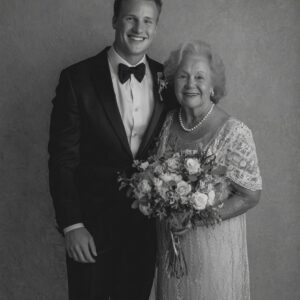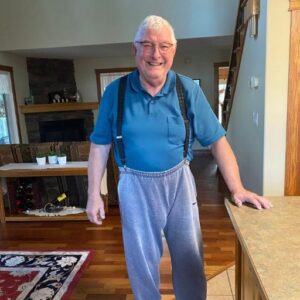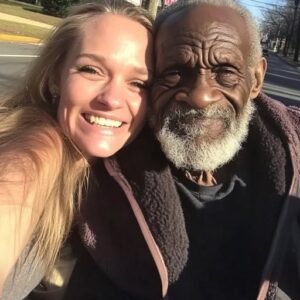
People always talk about the moment a soldier comes home.
The slow-motion airport hugs. The tearful reunions. The signs that say Welcome Back, Daddy! with glitter and crooked letters.
Ours didn’t look like that.
No cameras. No crowd. Just a dusty parking lot, a too-quiet morning, and me standing stiff in a shirt I suddenly felt too old to be wearing.
And then he stepped out of the truck.
Same uniform. Same shaved head. But his face looked different—harder somehow. Like he’d aged ten years in half that.
He opened his arms and I froze.
Not because I wasn’t happy. But because I didn’t know if he’d still smell like him. Or if I’d still fit in the same space I used to crawl into when I was little.
Then he said my name.
Just once. And everything cracked.
I ran into him so hard I almost knocked us both over. He wrapped around me like a shield, and I could feel his chest shake. Just once. Like a silent sob he refused to let out.
But as he pulled away, something in his eyes stayed distant. He smiled, but it didn’t reach all the way. Like he was looking through me, not at me.
“Dad,” I whispered, hoping the word would make him more real. More solid. “You’re home.”
He nodded, then looked past me at the house like he was bracing himself for a storm.
Mom came out a minute later, drying her hands on a dish towel like she didn’t know what else to do with them. She kissed him on the cheek, and he smiled again—this time a little softer—but still not quite the smile I remembered.
That night, the house stayed quieter than usual. No loud TV, no teasing from Dad at dinner. Just the clinking of forks and awkward glances over mashed potatoes.
He asked about school. I gave short answers. He asked about my guitar, and I told him I hadn’t played in a while.
Then silence.
When I got up to take my plate to the sink, I heard him mutter something to Mom. Just one word: “Soon.”
I didn’t know what it meant.
The next few days felt like walking through fog. Dad was here, but not really. He’d go for long walks without saying where. He’d sit in the garage for hours with the door open, staring at nothing. At night, I’d hear him get up and pace the hallway.
He never yelled. Never snapped. But it was like there was a whole part of him locked up behind his eyes.
And I kept wondering—what did he see over there that made him forget how to be here?
One afternoon, I came home early from school. I found him in the backyard, sitting on the grass with his hands clenched in fists. The dog, Rusty, was curled up next to him, resting his head on Dad’s knee.
I almost walked away. But something told me to sit.
I didn’t say anything. Just sat beside him until the sun started to dip.
Then he whispered, “I lost someone.”
I didn’t ask who. I didn’t have to.
His voice cracked, like the words cost him something just to say. “He was nineteen. Played cards with me every night. Said he wanted to be a chef when he got out.”
Dad rubbed his face, like he was trying to scrub the memory out. “It was fast. One second we were laughing, the next—”
He didn’t finish the sentence.
I reached out and grabbed his hand. He didn’t let go.
That night, he finally slept.
The next week, things started to shift. He came with me to my soccer game. Sat in the bleachers even though I knew he hated crowds now.
He helped Mom build the new shelf in the kitchen and joked that it would never hold her spice collection. She laughed, and I almost cried hearing it.
But I could still tell—he was holding something in.
Something big.
One evening, I found an envelope on my pillow. No name on it. Just taped shut with army precision.
Inside was a letter.
It was written in Dad’s handwriting, messy and rushed like he didn’t want to write it but had to.
He wrote about guilt. About how he didn’t think he deserved to come home when others didn’t.
He wrote about the nightmares. The screams he still heard when it got too quiet.
And then he said something that stuck with me: “Sometimes I feel like I’m haunting this house. Like I’m here, but I left the real me somewhere over there.”
At the end of the letter, he wrote, “I don’t know how to fix this. But I’m trying.”
I folded the letter and kept it in my guitar case. I didn’t know what to do with it, but I knew it mattered.
A month later, he started volunteering at the high school. Teaching woodshop. Said it kept his hands busy and his mind a little quieter.
He didn’t talk about the war much. But when he did, it wasn’t with sadness—it was with purpose.
He’d say, “You don’t survive something like that to stay silent about it.”
One day, I came home to find him cooking dinner. Real dinner. Chicken parmesan, pasta, garlic bread. Like he was trying to prove something—to himself, maybe.
He looked happier. Not healed. But present.
“Thought we’d eat like kings tonight,” he said with a grin.
Mom cried when she saw the table. Not big, heaving sobs. Just quiet tears while she hugged him around the waist.
After dinner, he asked me to play guitar.
I hadn’t played in months, maybe longer. But I opened the case and found the letter still inside.
I played a song I used to strum as a kid. One he used to hum along to while driving.
And this time, he sang.
The next day, something happened that changed everything.
I got home from school to flashing lights outside the neighbor’s house. Police cars. An ambulance.
Mr. Eddings, the older man who lived two doors down, had collapsed on his porch. Heart attack.
While the rest of the neighbors stood around watching, Dad ran straight in. No hesitation.
He did CPR. Stayed calm. Talked to Mr. Eddings until the paramedics took over.
When it was over, someone told the news.
A reporter showed up the next day wanting to do a story on “the local veteran who saved a life.”
Dad almost said no.
But I saw something shift in him. A kind of peace settle in.
He agreed to the interview, but only if they talked about him and the kid he lost. Said he owed him that.
The story ran that Sunday. Headline: “Hero at Home.”
People at school started asking about my dad. Wanting to meet him. Hear him speak.
And slowly, he became someone new. Or maybe someone more whole.
One afternoon, months after he’d come home, he handed me another envelope.
Inside was a letter to the family of the young man he’d lost. He said he’d finally found the words.
“I couldn’t save him,” he wrote. “But I’ll carry him with me every day. And I promise you—he mattered.”
We mailed it together. No cameras. No crowd. Just the two of us at a quiet mailbox.
A week later, a package arrived.
Inside was a photo of the young man. Smiling, holding a tray of cookies.
And a note from his mother: “Thank you for remembering our son. He would’ve loved your letter. And he would’ve liked you, too.”
That night, Dad hung the photo in the garage. Right above his workbench.
I saw him staring at it later, eyes soft, hands still.
Then he picked up his tools and started building again.
It wasn’t dramatic. No music playing. No big speech.
But in that moment, I knew.
He was home.
Really home.
Sometimes, the people we love come back different. War leaves marks no one can see. But healing isn’t about erasing the pain—it’s about choosing to live with it, and still show up anyway.
And my dad?
He showed up.
Every day after that.
If this story touched something in you, share it. Tell someone you love that you see them. And if someone you know came home but hasn’t really come back yet—just sit with them. Listen. Be patient.
Because sometimes, the hug says more than words ever could.
And sometimes, the silence is just the start of a story worth telling.
Don’t forget to like and share. Someone out there might need this more than you know.
